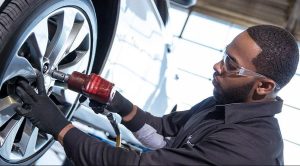Chevrolet vehicles are renowned for their reliability and durability, but like any car, they require regular maintenance to perform at their best. Whether you own a Chevrolet Silverado, Malibu, or Traverse, keeping your vehicle in top shape involves more than just occasional oil changes. Proper maintenance and timely repairs not only extend the life of your Chevy but also ensure that it runs efficiently, saving you money on costly repairs down the road. Here are essential tips to help you maintain and repair your Chevy, ensuring its longevity and peak performance.

One of the most fundamental maintenance tasks for any vehicle, including Chevys, is changing the oil regularly. Oil is the lifeblood of your engine, lubricating its components to reduce friction and prevent overheating. Over time, oil breaks down and becomes less effective, which can lead to engine wear. Chevy recommends changing the oil every 3,000 to 7,500 miles, depending on the type of oil and your driving habits. Always ensure that the oil filter is replaced along with the oil, as a clogged filter can restrict the oil flow, damaging the engine. Regular oil checks and changes are crucial to keeping the engine in excellent condition.
Brake maintenance is another critical area of attention. Brake pads naturally wear down with regular use, which can compromise your ability to stop safely. For your chevy repair and maintenance tips system to function at its best, it’s important to have the brake pads and rotors checked periodically. If you notice any grinding, squeaking, or reduced braking performance, it’s time to have the brakes inspected and possibly replaced. In addition to the pads, check the brake fluid levels, as low fluid can lead to a decrease in braking power. Ensuring that your brakes are always in optimal condition is key to safe driving.
Your tires are also essential to both the safety and performance of your Chevy. Tires are the only part of your vehicle that makes contact with the road, so maintaining them is crucial. Ensure your tires are properly inflated, as underinflated tires can reduce fuel efficiency, cause uneven wear, and impact handling. Rotate your tires every 6,000 to 8,000 miles to promote even wear, as well as to prolong their lifespan. Regularly inspect the tires for any signs of damage, such as punctures or cracks, and replace them when needed. Proper tire maintenance also contributes to a smoother ride and better traction, especially in inclement weather.
In addition to the engine and brakes, the battery in your Chevy plays an important role in its overall performance. A dead or weak battery can leave you stranded, so it’s essential to monitor its condition. Chevy batteries typically last between three to five years, depending on the climate and usage. Check the battery terminals for signs of corrosion and clean them if necessary. If your car experiences difficulty starting or if the lights appear dim, it could be a sign that your battery is losing power and may need to be replaced. Regular battery checks can prevent unexpected breakdowns.
Another often-overlooked maintenance item is the air filter. Over time, the engine air filter becomes clogged with dirt and debris, which can reduce fuel efficiency and engine performance. Replacing the engine air filter regularly is an easy and inexpensive way to maintain the efficiency of your Chevy. Similarly, the cabin air filter should be replaced periodically to maintain air quality and optimal airflow inside the cabin.
Maintaining your Chevy also means checking and replenishing other fluids such as coolant, transmission fluid, power steering fluid, and windshield washer fluid. These fluids are vital for keeping your vehicle running smoothly, and running low on any of them can lead to serious mechanical issues. Regularly checking these fluid levels can help you avoid problems before they become costly repairs.
By staying on top of these essential repairs and maintenance tasks, you can ensure that your Chevy remains reliable, safe, and efficient. Regular upkeep not only boosts your vehicle’s performance but also saves you money by preventing major repairs down the road. Always refer to your Chevy’s owner manual for specific maintenance schedules and consult with a professional mechanic for more complex issues.